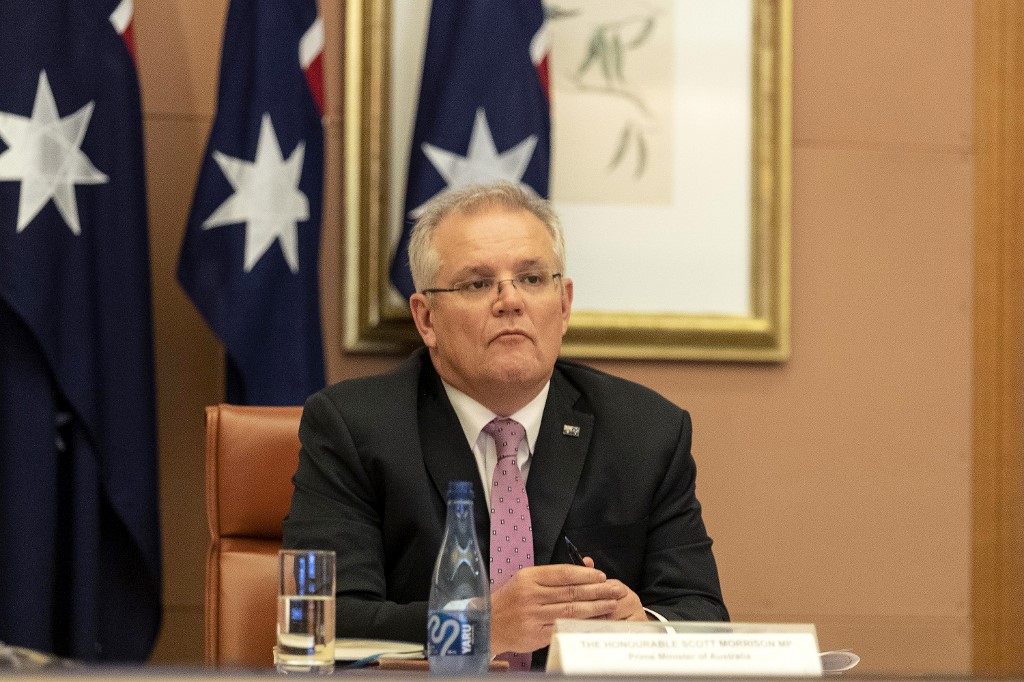
Australian Prime Minister Scott Morrison (C) attends a videoconference with G20 leaders to discuss the COVID-19 coronavirus, at the Parliament House in Canberra on March 26, 2020. – Leaders of the G20 major economies are holding an online summit on March 26, in a bid to fend off a coronavirus-triggered recession, after criticism the group has been slow to address the crisis. (Photo by Gary Ramage / POOL / AFP)
SYDNEY — Australia warned Thursday it would not be intimidated by attempts at economic “coercion” after China threatened to undermine the multi-billion dollar flow of Chinese tourists and students to the country.
Beijing has issued warnings in recent days that Chinese should avoid Australia due to concerns about racist incidents targeting ethnic Asians during the coronavirus pandemic.
The comments were the latest salvo in a long-brewing diplomatic dispute between Australia and its largest trading partner.
Prime Minister Scott Morrison dismissed on Thursday allegations of racist treatment of Chinese as “rubbish”.
“It’s a ridiculous assertion and it’s rejected,” he said during a radio interview.
“We have an important trading relationship with China and I’d like to see that continue,” Morrison said.
But he warned his government would “never be intimidated by threats” or “trade our values in response to coercion from wherever it comes”.
During the pandemic racism toward Asians has reportedly increased, according to the New South Wales anti-discrimination commission.
Tensions have grown steadily in recent years between the two governments as Australia has moved to counter Chinese moves to build its influence both domestically and across the Pacific region.
More recently Canberra angered Beijing by leading calls for an international probe into the origin and handling of the coronavirus pandemic in central China.
China has since taken several steps targeting trade with Australia, including the attempts to discourage Chinese travellers, who represent the biggest groups of foreign tourists, and overseas students.
The effect of Beijing’s travel advice will only be known once Australia’s borders — closed to all non-essential inbound and outbound travellers due to the pandemic — reopen.
Education is Australia’s fourth-largest export with more than 500,000 international students enrolled last year, bringing about Aus$37 billion into the economy.
After Canberra’s support for a virus inquiry, China’s ambassador in Canberra threatened a widespread consumer boycott of Australian products — a warning followed up by a bar on four major Australian beef exporters.
That was followed in May by an 80-percent tariff on Australian barley over dumping allegations, a move grain growers say will cost at least Aus$500 million (US$350 million) a year.